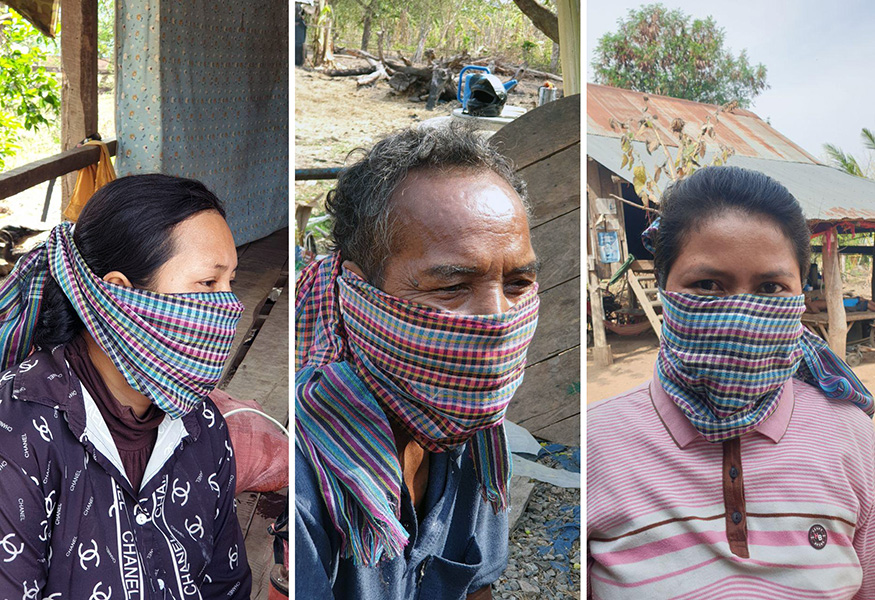Stories of Change

People are wearing the Khmer scarves that were distributed through a CWS program as face masks.
Adapting and Expanding our work in Cambodia in response to Coronavirus
Like all countries, Cambodia is battling social and economic challenges in addition to public health issues in this time of pandemic. Of course, the new rules that the Cambodian government has put in place to try to contain the coronavirus are necessary and can help prevent further harmful health impacts. We fully support these measures, and we’re focusing on how we can help the families we work with keep themselves safe and healthy.
Of course, we have paused the community information sessions that are a staple of our work with vulnerable families and communities. However, the need to share information about water, sanitation and hygiene is more important now than ever. So we have included information specifically about COVID-19 now and are focused on sharing information in socially distant ways directly with families. We are making sure they know how proper handwashing can prevent the transmission of the virus. We are also explaining why social distancing is important, and trying to lead by example.
Luckily, the Ministry of Health has information, education and communications materials ready for us to use. Our local partner in Battambang province, ADOVIR, is using their posters and videos to facilitate talks. And, because commercially-made face masks are not affordably available in the villages where the CWS program takes place, we’re supporting ADOVIR to distribute clean, new traditional Khmer scarves. These come with a demonstration of how to use the scarf effectively for COVID-19 protection. We are providing soap to the poorest of families, too. So far, we have directly reached 456 people in about 100 families in six villages where the virus has yet to have an impact. We hope changed behavior among all families will help keep them, and others with whom they share information, safe.
Besides expanded public information-sharing, we are continuing our work with individual families to build latrines. This work raises the overall standard of hygiene and sanitation in these communities.
Vath Sarorn, who is a Commune leader in one area where our program continues, commented, “It is really tough for my people now. This virus is a risk to health .. and to livelihoods. Most people are daily wage laborers. Now, travel restrictions and closure of the Cambodia-Thailand border [has put them] out of work.” Still, Mr. Sarorn continued, we “thank organizations [like yours for] support during these critical times.”
Despite his gratitude, we know that Mr. Sarorn is very worried. Our team and partners are worried, too. The impact COVID-19 is having in the villages where we have been working to help families better themselves will continue – even if the virus itself does not reach them. And so, we recommit ourselves to continue all livelihoods support work as we can now and when it is safe to do more in the future.
